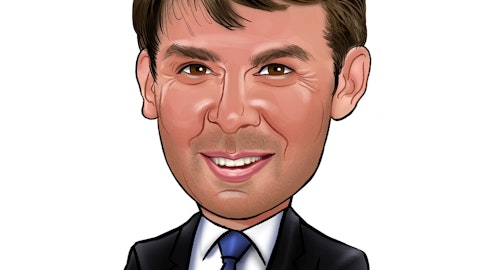With the release of the biographical drama “The Big Short” in 2015, the masses have learned about Michael Burry, who was the unknown legend of the 2007 financial crisis. Burry was one of the first to recognize that the subprime mortgage crisis was about to start and bet against the mortgage bond market in a move that later earned him personally $100 million and another $700 million for his investors. Prior to the movie, the world knew about Burry from Michael Lewis’ book that the movie was based on, but other than that the information about him was relatively scarce.
However, as a contrarian investor, Burry also scored big during the Internet bubble burst. Burry, who is a proponent of fundamental value of investing, saw that Internet stocks were overvalued as they didn’t generate enough revenue or profits and started shorting them. His fund, Scion Capital, was founded in 2000 and was up by 55% the following year, while the S&P 500 lost almost 12%. In the following year, the Index lost 22%, while Burry was 16% in the green. Even as the market turned around and advanced by 29% in 2003, Burry still managed to beat it by posting gains of 50%.
After the success of the early 2000s, Burry switched to another industry, subprime financing, where he also noticed some irregularities and unsustainability. He quickly figured out that many borrowers wouldn’t be able to pay back their mortgages if interest rates would increase, but the industry was valued as if all the mortgages would be paid. So, he went to Goldman Sachs and bought from them credit default swaps.
He also told his investors about his findings, but they didn’t want to hear his theory, mainly because their other bets were made based on a safe subprime mortgage market. Moreover, investors assumed that Burry is wrong and demanded their money back, although he had already put the money into some illiquid bets against the market and couldn’t sell them, so he just ignored the demands of his investors. Investors had their reasons to be worried, as the short bets made in 2005 were losing money for Scion, which lost 17% in 2006, mainly due to its credit derivative positions.

Copyright: hin255 / 123RF Stock Photo
However, in 2007, the market started to turn around with the fall of Bear Stearns and Lehman Brothers and other investors also saw the dangers of the system. Burry was one of the few that managed to collect solid profits from the collapse of the subprime mortgage market. Another fund that also bet against the subprime mortgages were John Paulson’s Paulson & Co, which set up two new funds specifically to bet on the housing bubble burst.
However, despite the big gains registered by Scion in the financial crisis, other investors didn’t want to work with him anymore. After he hadn’t been able to raise funds for his fund, he shut it down in 2008 to focus on managing his own investments.
Read more details about Michael Burry, including his net worth, strategy, and investments on the next page.





